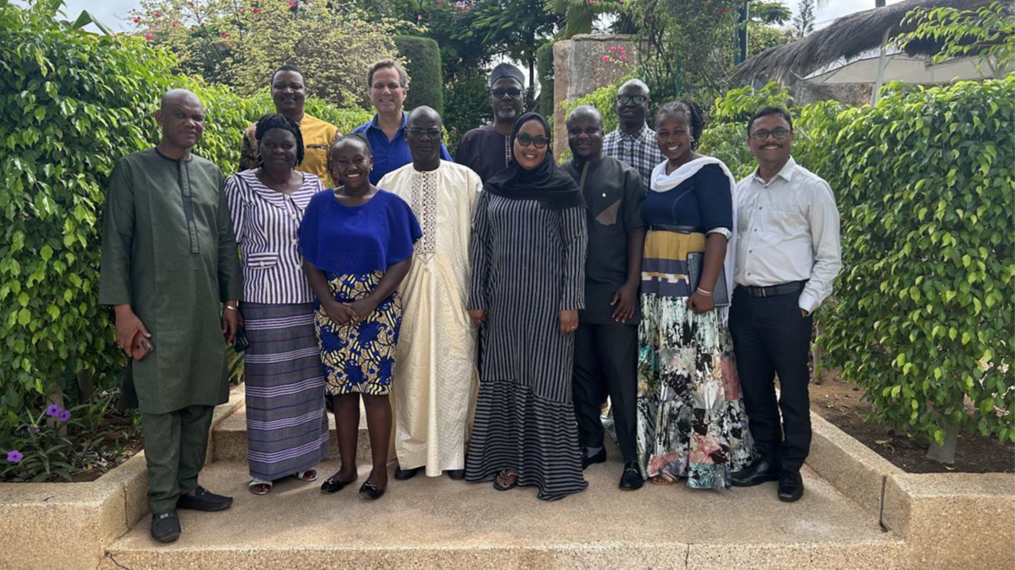The Africa Dryland Crops Improvement Network (ADCIN) emphasizes capacity building as a cornerstone for sustainable development and agricultural innovation. By addressing both human and infrastructure development, ADCIN is empowering research institutions and individuals across Africa to enhance agricultural practices, strengthen food security, and improve livelihoods in dryland regions.
In 2023, ADCIN made significant strides toward these goals by investing $1 million to strengthen National Agricultural Research and Extension Systems (NARES). This initiative focused on enhancing human capacity and infrastructure, equipping researchers, students, and institutions to address the unique challenges of dryland agriculture. The funding supported 32 awardees from East and Southern Africa (ESA) and West and Central Africa (WCA), including 15 visiting scientists, 7 students, 4 group training sessions, and 6 infrastructure development projects.
In 2024, ADCIN organized multiple training sessions in Senegal, Ethiopia, Nigeria, and Kenya, targeting seed system development, business sustainability, crop production improvements, and advanced data management techniques. These capacity-building efforts promoted knowledge sharing, collaborative research, and best practices in seed systems, crop breeding, agronomy, and data analytics. Four group training sessions were held: two in Kenya and Ethiopia for the ESA region, and two in Senegal and Nigeria for the WCA region.
Strengthening Seed Companies and CBOs for Growth in Nigeria
ADCIN, in collaboration with Syngenta Foundation Nigeria, hosted a two-day capacity-building workshop for seed companies and community-based organizations (CBOs) in Kano, Nigeria, on September 4–5. Supported by partners such as CDA, IITA, ICRISAT, and NASC, the workshop aimed to enhance seed production and commercialization efforts while promoting AVISA crops like sorghum, pearl millet, groundnut, and cowpea.
The workshop attracted 30 participants, including 20 CBOs and 10 seed companies, who were trained in topics such as seed production best practices, post-harvest handling, and seed certification standards. Key outcomes included the implementation of modern innovations like e-certification and seed tracking technologies, designed to improve transparency and efficiency in the seed sector.
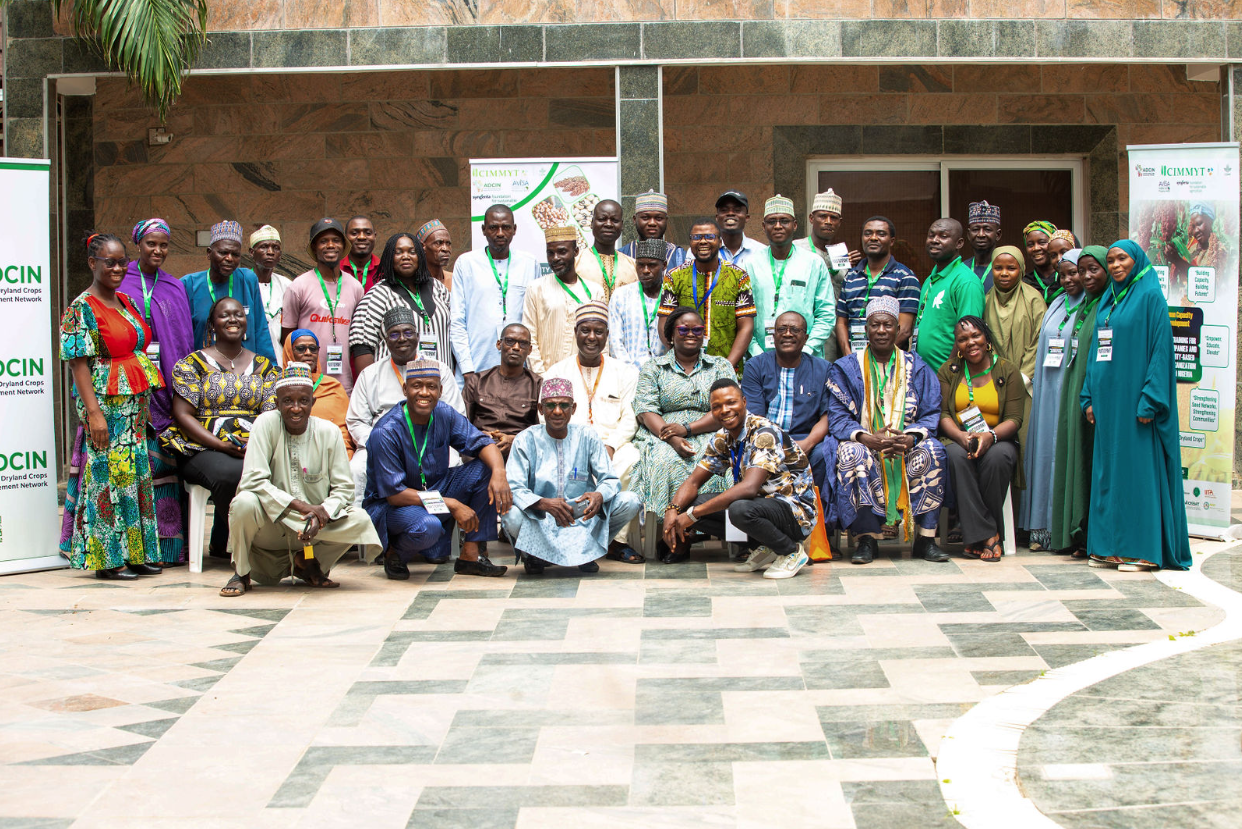
Participants were also introduced to the Farmers’ Hub concept, which offers smallholder farmers access to essential agricultural inputs, machinery, and market opportunities. Many participants expressed enthusiasm about using the Farmers’ Hub to expand their customer base and grow their businesses.
“The networking opportunities provided by this training have been invaluable. I’m looking forward to applying what I’ve learned and taking my business to the next level,” shared one participant.
The training is expected to have a lasting impact on seed quality and foster business growth in Nigeria. By equipping CBOs to transition into fully operational seed companies, ADCIN is advancing the sustainability of Nigeria’s seed industry. Participants are now better prepared to tackle challenges in seed production, marketing, and regulatory compliance, paving the way for a more resilient seed sector.
With the knowledge gained from the workshop, participants are now better prepared to address the challenges of seed production, marketing, and regulatory compliance, paving the way for a more resilient and robust seed industry in Nigeria.
Promoting Crop Improvement in Senegal
From August 20-27, 2024, more than 50 breeding and crop protection technicians from nine West and Central African countries gathered in Saly, Senegal for a comprehensive training session. The training, co-funded by the AVISA project and organized by CIMMYT in collaboration with National Agricultural Research and Extension Systems (NARES) from nine West and Central African countries, including Burkina Faso, Cameroon, Chad, Ghana, Mali, Niger, Nigeria, Togo, and Senegal, aimed to improve the efficiency of cowpea, groundnut, pearl millet, and sorghum breeding operations.
Participants gained hands-on experience in key areas such as seed trial management, electronic data collection, and genotyping. These skills are essential for improving crop varieties and making them more resilient to local conditions.
Field trips to Bambey, Senegal allowed participants to practice techniques such as setting up and managing seed trials, leaf sampling for genotyping, and electronic data collection using tablets making research more efficient and accurate.
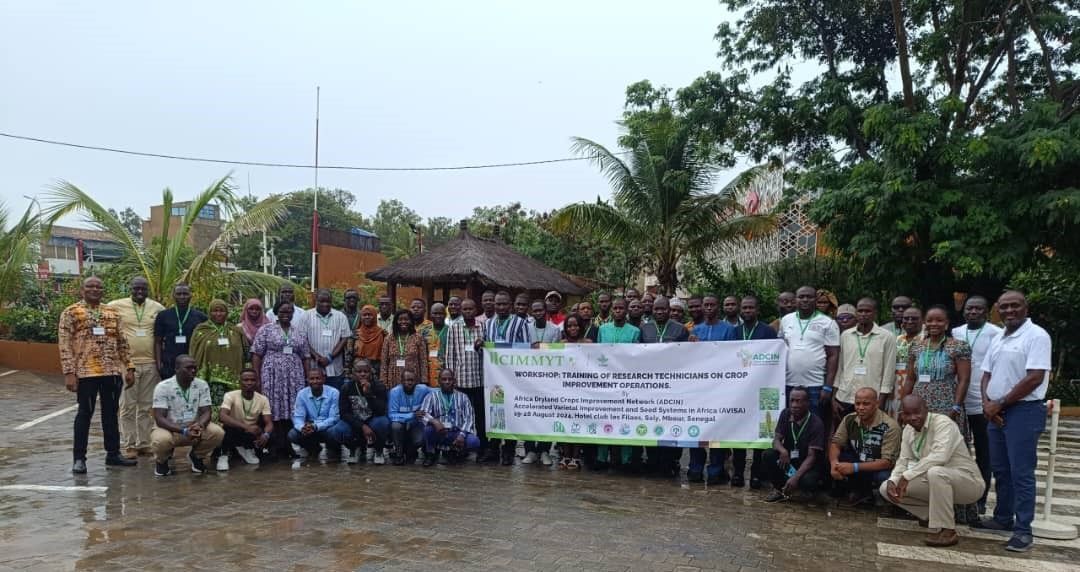
“This training has given me new insights into how we can improve our breeding programs and provide better seeds for our farmers. The practical sessions were particularly helpful,” said a participant.
By enhancing technicians’ skills in trial management and data collection, the training is expected to improve field data accuracy and contribute to the development of climate-resilient crop varieties, directly addressing regional food security challenges.
Enhancing Seed Producers’ Skills in Ethiopia
ADCIN held a three-day workshop in Addis Ababa, Ethiopia, from July 30 to August 1, 2024, focusing on building the capacity of the country’s seed producers. Organized in collaboration with the Ethiopian Institute of Agricultural Research (EIAR) and supported by CIMMYT, the workshop aimed to strengthen Ethiopia’s seed producers by improving their skills in key areas such as seed health management, seed business management, variety maintenance, breeder seed production, and postharvest handling.
The training attracted 19 participants from both the public and private sectors, including seed companies, producer associations and research centers. The sessions provided critical insights into the management of seed-borne diseases such as mycotoxins and aflatoxins, which affect crops like sorghum, chickpea, beans, and finger millet. Participants learned how to incorporate seed health testing into Ethiopia’s national certification process, which will help ensure healthier seeds and increased crop productivity.
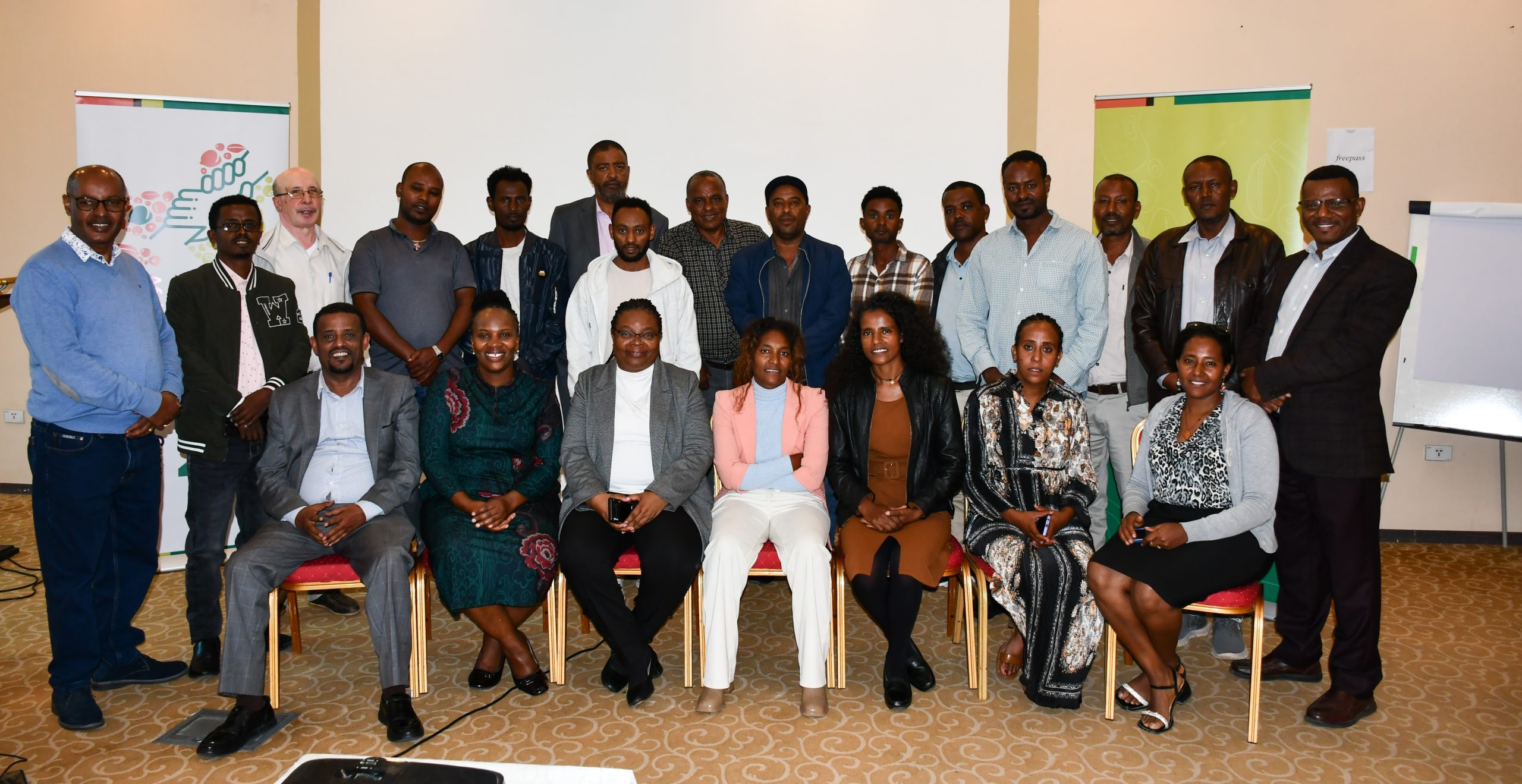
The seed business management session introduced participants to the Business Model Canvas (BMC), a framework for creating viable and demand-driven seed business models. By emphasizing sustainable practices in seed production, processing, and marketing, the training equipped participants with the tools they need to grow their seed businesses and contribute to Ethiopia’s growing agricultural sector.
The workshop also discussed the importance of variety maintenance and breeder seed production, focusing on the genetic integrity of improved varieties. The postharvest handling session focused on seed storage techniques and pest management, helping participants in maintaining seed quality after harvest.
“This workshop has really opened our eyes to new business strategies and how we can ensure that our seed businesses remain profitable and sustainable,” shared a representative from a local seed company.
Through this training, ADCIN is supporting Ethiopia’s seed producers in their efforts to improve seed quality and business sustainability, thereby contributing to the long-term growth of the seed industry.
Equipping Breeders with Advanced Data Management Skills in Kenya
ADCIN held a training on modern biometrics, quantitative genetics and data management in Nairobi, Kenya, from 10 to 14 June. This capacity-building initiative brought together 43 participants from nine Eastern and Southern African (ESA) countries, representing breeding leaders, data champions, and young breeders working on crops such as chickpea, finger millet, pearl millet, pigeonpea, and sorghum.
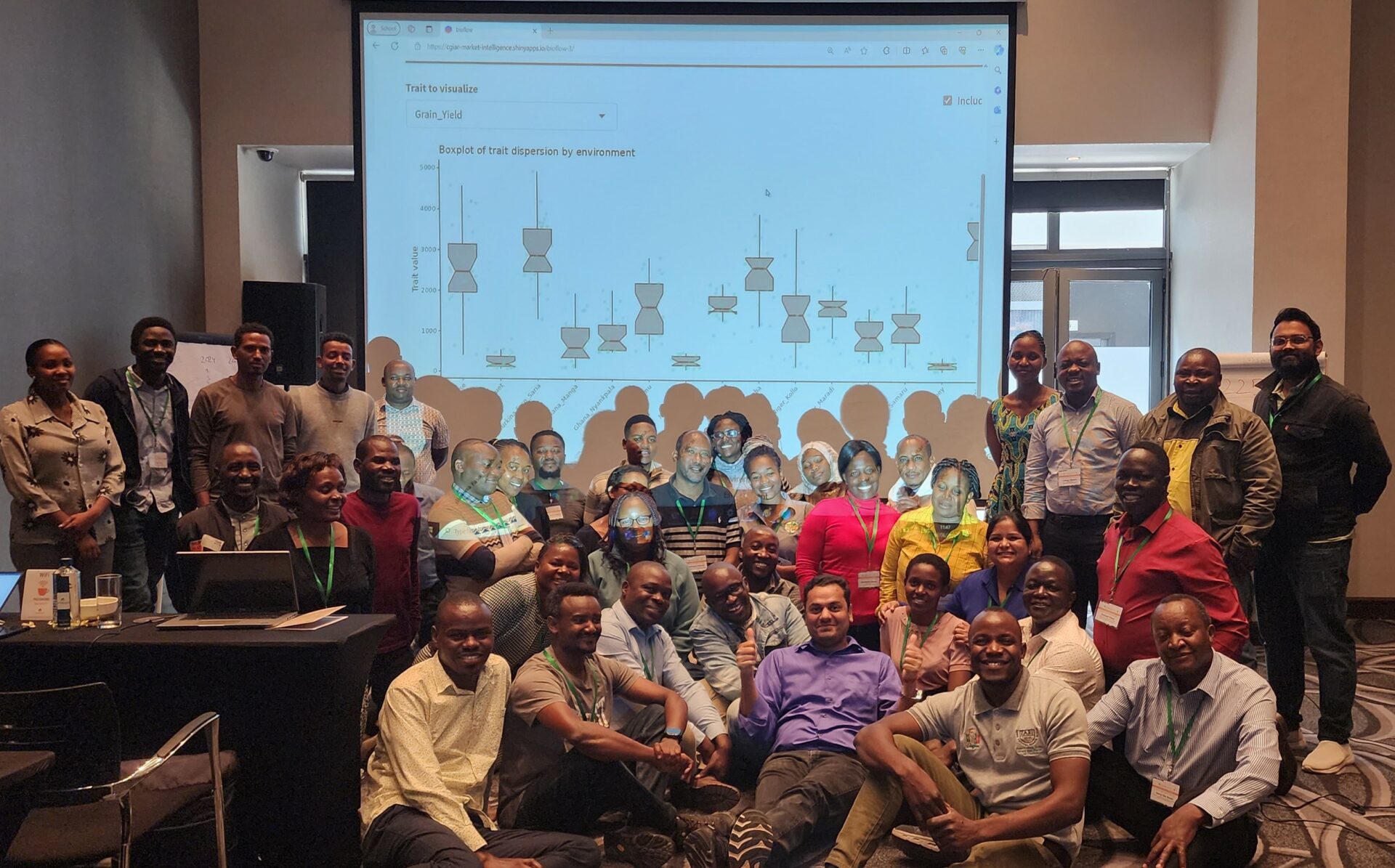
The training focused on data-driven decision-making in breeding programs and covered topics such as experimental design, advanced data analysis using the CGIAR Breeding Analytical Pipeline, and managing genotype x environment (GxE) interactions. Participants learned about the Breeding Management System (BMS), quality control processes, and practical applications of the CGIAR Breeding Analytical Pipeline, which enhanced their ability to analyze large data sets and improve breeding accuracy across the CGIAR-NARES network.
A Holistic Approach to Capacity Development
These training programs are just a small part of ADCIN’s broader initiative to build capacity across Africa’s dryland regions. These efforts, which focus on critical areas such as seed production, crop improvement, business sustainability, and data management, are helping to develop resilient agricultural systems capable of withstanding the challenges of dryland agriculture. As ADCIN works to strengthen robust and sustainable seed industries, these capacity-building programs will play an important role in increasing food security and improving the livelihoods of communities in Africa’s drylands.
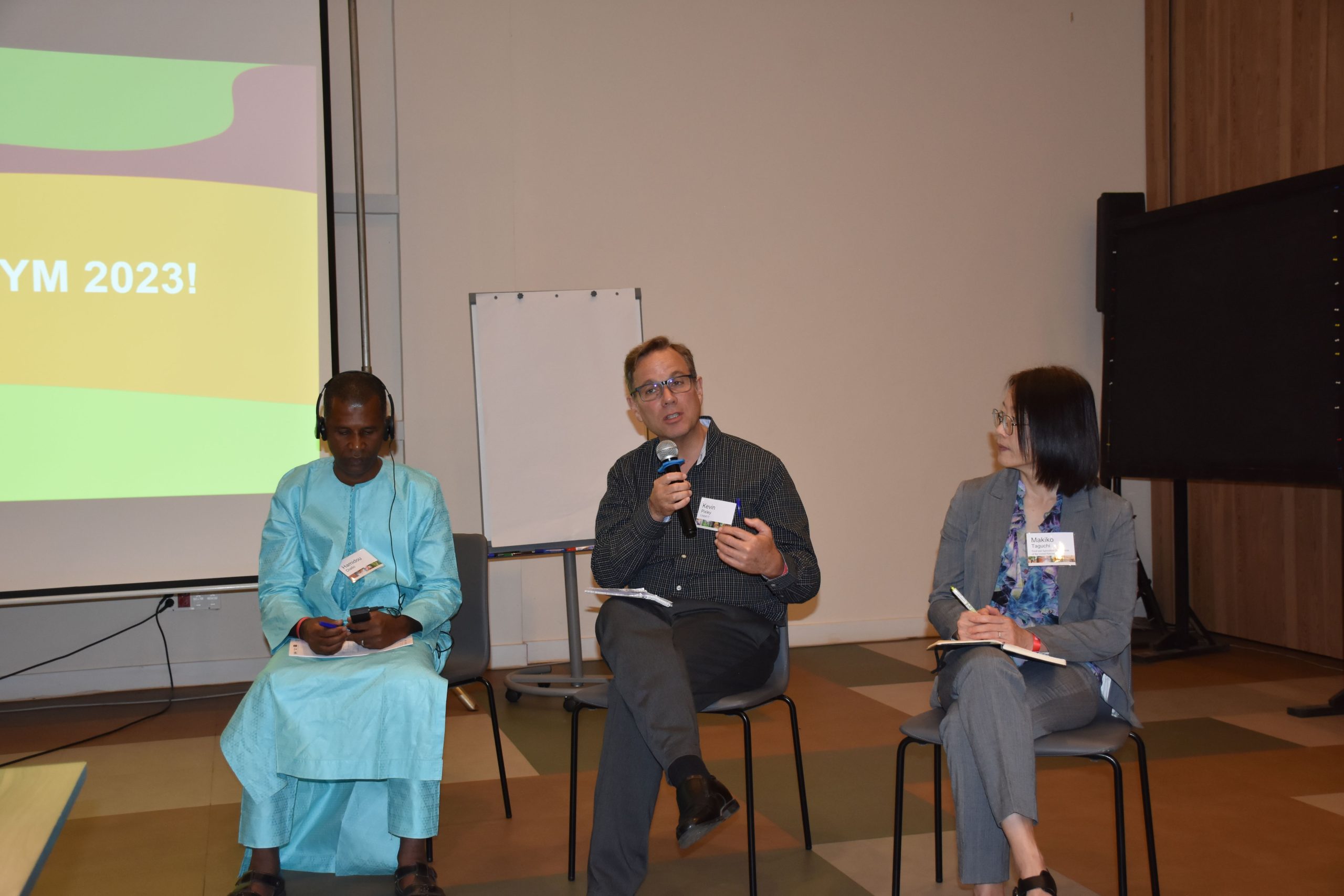
 Climate adaptation and mitigation
Climate adaptation and mitigation 